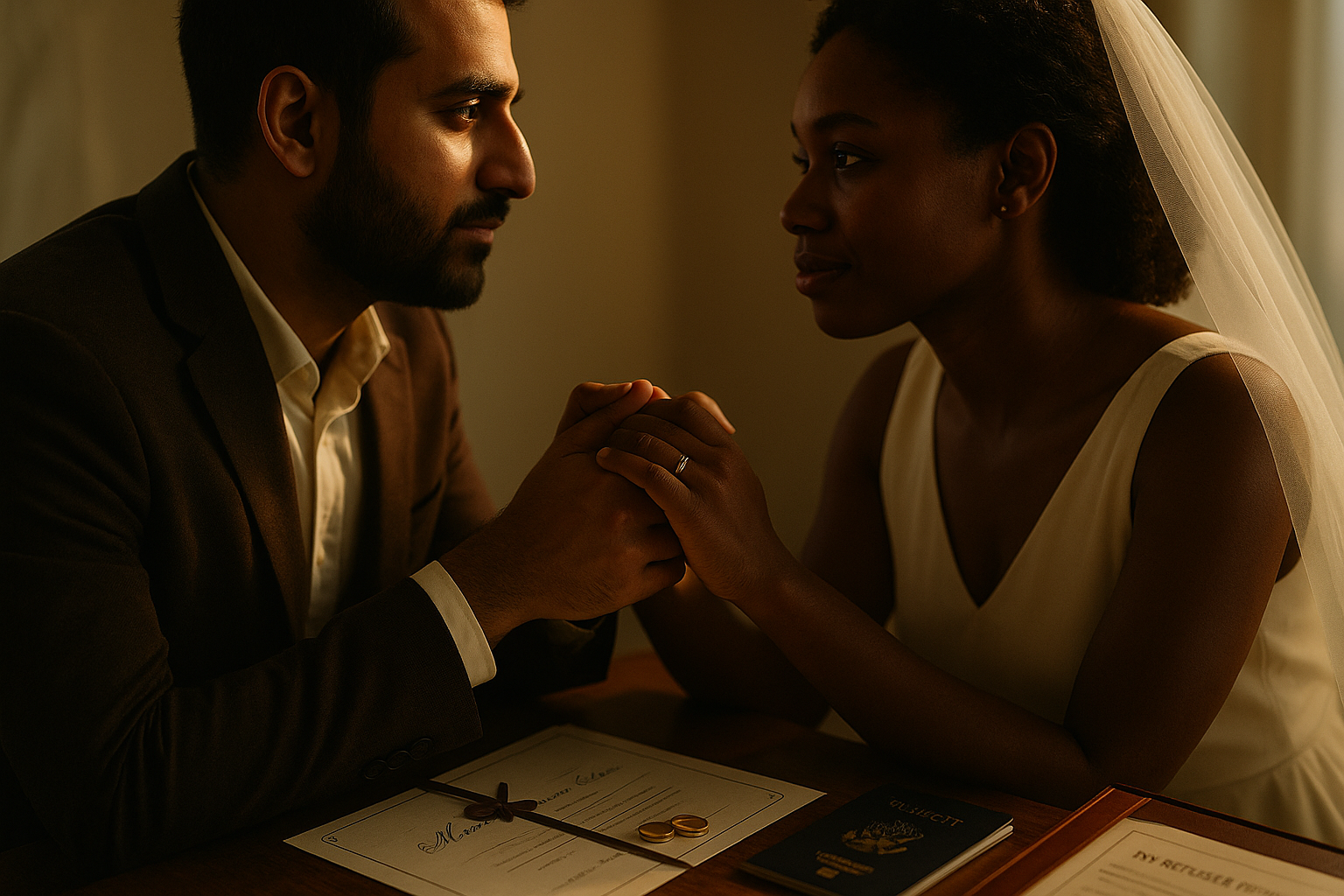In today’s digital age, many couples are opting for online marriages due to convenience and accessibility. However, when it comes to immigration processes, particularly refugee visa applications, it’s crucial to understand how these virtual unions are perceived by authorities.
Understanding Online Marriages
Online marriages, often referred to as virtual marriages or Zoom weddings, involve couples getting married through online platforms without being physically present in the same location. While these ceremonies can be legally binding in certain jurisdictions, their recognition varies globally.
USCIS Stance on Marriage Validity
The U.S. Citizenship and Immigration Services (USCIS) has specific guidelines regarding the recognition of marriages for immigration purposes. As of March 3, 2025, USCIS requires that marriages be legally valid under the law of the jurisdiction where they were performed. This means that for a marriage to be recognized for immigration benefits, including refugee visa applications, it must be legally recognized in the place it was celebrated. Informal or unregistered marriages, including some online marriages, may not meet this criterion. Learn more about USCIS’s policy on marriage validity.
Online Marriages and Refugee Visa Applications
For refugees seeking to include a spouse in their application, the marriage must be legally valid. If the online marriage is recognized as legal in the jurisdiction where it was performed, it may support a refugee visa application. However, if the marriage isn’t legally recognized, it could pose challenges. It’s essential to provide official documentation, such as a marriage certificate, to substantiate the union. USCIS outlines the necessary documentation for derivative refugee status.
International Recognition of Online Marriages
Different countries have varying stances on online marriages. Some jurisdictions recognize virtual marriages performed within their legal frameworks, while others do not. It’s imperative to verify the legal status of an online marriage in the country where it was conducted and understand how it’s perceived in the country of intended immigration.
Steps to Ensure Your Online Marriage Supports Your Application
- Verify Legal Recognition: Confirm that your online marriage is legally recognized in the jurisdiction where it was performed.
- Obtain Official Documentation: Secure a marriage certificate or equivalent document as proof of the union.
- Consult Immigration Authorities: Engage with immigration officials or legal experts to understand how your marriage will be viewed in the context of your application.
- Stay Updated: Immigration policies can change. Regularly check for updates to ensure compliance with current regulations.
FAQs
Q: Are all online marriages recognized for immigration purposes?
A: Not necessarily. Recognition depends on the legal status of the marriage in the jurisdiction where it was performed and the immigration policies of the destination country.
Q: What if my online marriage isn’t recognized?
A: If your marriage isn’t legally recognized, it may not support your immigration application. Consider consulting with legal experts to explore alternative options.
Q: How can I prove the validity of my online marriage?
A: Provide official documentation, such as a marriage certificate, and any additional evidence required by immigration authorities.
Q: Do all countries have the same policies regarding online marriages?
A: No, policies vary. It’s essential to research and understand the specific requirements of the country you’re applying to.
Q: Where can I get assistance with my application?
A: Consider reaching out to immigration attorneys or organizations specializing in refugee applications for guidance.
Understanding the nuances of online marriages in the context of refugee visa applications is vital. Ensuring that your marriage is legally recognized and properly documented can significantly impact the success of your application. If you have further questions or need assistance, feel free to contact us at Virtual Same Day Marriage.



